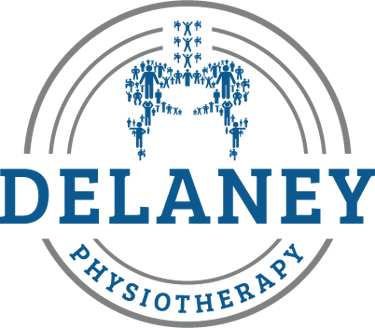Beyond Leakage: How Physiotherapy Helps Men Confidently Return to Life After Prostate Surgery
Struggling with urinary leakage after prostate surgery or during prehab? Discover how physiotherapy helps men regain confidence, enjoy social life, work & golf without worry. Learn the 'why' behind recovery.


Understanding & Overcoming Post-Prostatectomy Urinary Incontinence: Your Physiotherapy Guide to Recovery
1. Introduction: Facing a Common Challenge with Confidence
For many men, undergoing prostatectomy is a significant step in their health journey. While successful in treating prostate cancer, one of the most common, and often unspoken, side effects can be urinary incontinence—the involuntary leakage of urine. If you're experiencing this, know that you are absolutely not alone. Millions of men worldwide face this challenge, and it's a topic that truly benefits from open, stigma-free discussion.
The good news? You don't have to live with it. Physiotherapy plays a crucial, often underestimated, role in helping men regain control, confidence, and ultimately, get back to living life to the fullest – from social gatherings to getting back on the golf course. In this guide, we'll explore why incontinence can occur after prostate surgery and, more importantly, how targeted physiotherapy empowers you to understand and overcome it.
2. The "Why" Behind the Leakage: Understanding Post-Prostatectomy Incontinence
To effectively manage urinary incontinence, it helps to understand a little about why it happens. Your urinary control relies on a delicate system involving your bladder, urethra, and the muscles that support them, especially your pelvic floor muscles and the urethral sphincter.
During a prostatectomy, the prostate gland is removed. Because the prostate is located very close to the bladder and urethra, the surgery can impact:
The Urethral Sphincter: This is a ring of muscle that acts like a tap, keeping urine in the bladder. While a portion of this sphincter typically remains, it can be weakened or temporarily affected by the surgery itself.
Nerves: The nerves responsible for bladder function can be stretched or bruised during the procedure, affecting communication between the bladder and brain.
Pelvic Floor Muscles: These muscles form a sling at the base of your pelvis, supporting your organs and contributing to continence. Post-surgery, they might become less effective due to disuse, pain, or changes in how they interact with the new anatomy.
Most commonly, men experience stress incontinence after prostatectomy. This is leakage that occurs with activities that put pressure on the bladder, such as coughing, sneezing, laughing, lifting, or exercising. Some men might also experience urge incontinence, a sudden, strong need to urinate that's hard to defer.
3. Getting Ahead: The Power of Pre-Habilitation (Prehab)
Imagine preparing your body for a marathon – you wouldn't just show up on race day! The same proactive approach can be incredibly beneficial before prostate surgery. This is what we call pre-habilitation, or "prehab."
Prehab involves starting physiotherapy before your surgery. Why is this so powerful?
Pelvic Floor Muscle Awareness: You learn to identify and correctly activate your pelvic floor muscles before they're affected by surgery. This gives you a significant head start on recovery.
Building Strength: Strengthening these muscles beforehand means they'll be in a better position to recover and compensate more quickly after the procedure.
Education and Confidence: Understanding what to expect and how to prepare can significantly reduce pre-surgery anxiety. You'll already be familiar with the exercises and techniques that will be crucial for your post-operative recovery.
Faster Recovery: Patients who engage in prehab often report a quicker return to continence post-surgery.
Prehab typically includes guided pelvic floor exercises, practical tips on bladder management, and advice on optimising your general health before the operation.
4. Your Recovery Journey: Post-Prostatectomy Physiotherapy
Physiotherapy after prostatectomy is a cornerstone of recovery. We typically recommend starting as soon as your surgeon gives the green light, often a few weeks post-operation.
So, what does this recovery journey involve at Delaney Physio?
Comprehensive Assessment: Your first visit is always confidential and empathetic. We'll listen to your specific concerns, discuss your medical history, current symptoms, lifestyle, and your personal goals for recovery.
Targeted Pelvic Floor Muscle Training: This is the heart of continence recovery.
Correct Technique is Key: It's not just about "squeezing." We'll ensure you're activating the correct muscles effectively. Many men mistakenly use their abdominal or gluteal muscles instead of their pelvic floor. We'll guide you to isolate and engage these vital muscles.
Progressive Strengthening: Just like any other muscle, your pelvic floor needs consistent, targeted exercise to regain strength and endurance. We'll develop a progressive programme tailored to your unique needs.
Functional Integration: Learning to activate your pelvic floor muscles at the right time – for instance, before a cough, sneeze, or lift – is crucial for preventing leaks in daily life.
Bladder Retraining Strategies: We'll provide practical advice on managing bladder urges, optimising fluid intake, and gradually increasing the time between toilet visits to help your bladder regain its natural rhythm.
Lifestyle Optimisation: We'll discuss how factors like diet, fluid intake, and bowel habits can impact bladder function and provide recommendations for healthy living.
Core Stability and Posture: Your overall core strength and posture play a supportive role for your pelvic floor. We'll integrate exercises to improve these areas, enhancing your body's overall continence mechanism.
Safe Return to Activity: Whether it's walking, lifting, or your favourite sport, we'll guide you on how to safely and gradually resume activities without putting undue strain on your recovering system, building your confidence every step of the way.
5. Reclaiming Your Life: Beyond the Worry of Leakage
The aim of physiotherapy isn't just about stopping leaks; it's about giving you back your confidence and freedom to live life fully.
Social Confidence: Imagine attending social events, enjoying a laugh with friends, or going out for a meal without constantly worrying about where the nearest toilet is, or the fear of an accident. We've seen patients transform from avoiding social situations to confidently embracing them.
Return to Work: For many, the distraction and discomfort of incontinence can make focusing at work incredibly challenging. Regaining continence means you can concentrate on your professional responsibilities with peace of mind.
Getting Back on the Golf Course: For the keen golfer, urinary leakage can be a significant barrier. The impact of a swing, walking the course, or even the camaraderie with playing partners can all be overshadowed by worry. Physiotherapy directly addresses these concerns by strengthening the core and pelvic floor, teaching you how to brace effectively during physical exertion, and building the confidence to enjoy every drive and putt without hesitation. We've helped many gentlemen get back to their beloved sport, free from worry about leakage during their swing or walks between holes.
Enjoying Everyday Life: From gardening and walking the dog to simply bending down to pick something up, physiotherapy helps you regain control over all the small, vital moments that make up your day.
6. Why Choose Delaney Physio for Your Recovery?
At Delaney Physio, we specialise in Men's Health Physiotherapy, meaning we have a deep understanding of the unique challenges men face after prostate surgery. We are committed to:
Empathetic & Confidential Care: Providing a safe, non-judgemental space to discuss sensitive topics.
Education-First Approach: Ensuring you understand the 'why' behind your condition and treatment, empowering you in your own recovery.
Individualised Treatment: Crafting a personalised plan that fits your specific needs and goals, because every man's journey is unique.
Proven Experience: Helping countless men in Ireland successfully regain continence and confidence.
7. Frequently Asked Questions (FAQs)
How long will it take to recover? Recovery timelines vary for each individual, but consistent progress is made with adherence to your tailored programme. Many men see significant improvements within weeks to months.
Is it too late to start physiotherapy? Rarely. Even if your surgery was some time ago, improvements in continence are often possible with targeted physiotherapy.
Will the exercises be difficult? The exercises are gentle but require consistency. We'll guide you through each step to ensure you're performing them correctly and effectively.
8. Take the First Step Towards Confidence
You don't have to suffer in silence, and effective, evidence-based solutions are available. Your journey back to full confidence and an active life is possible, and specialist physiotherapy is your most powerful ally.
Ready to reclaim your freedom and get back to living life without the worry of leakage?
Contact Delaney Physio today for a confidential assessment.
Book here or call us at 07462934405.
If this information was helpful, please consider sharing it with someone who might benefit. Let's continue to break the silence around men's health.



